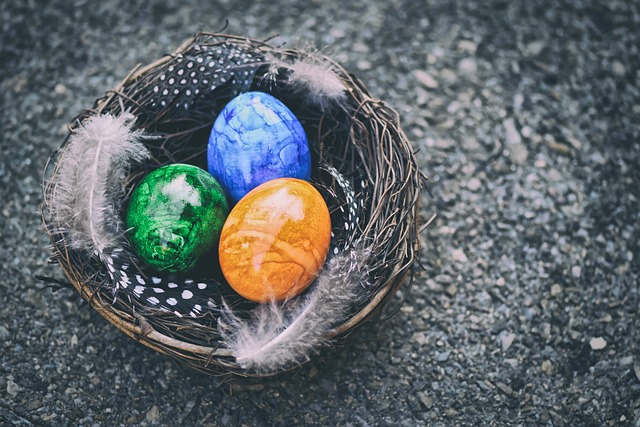Women facing fertility challenges due to ovarian conditions turn to donor eggs as an alternative path to parenthood. This journey is emotionally complex, with societal stigma adding uncertainty. Donor eggs offer hope and reproductive freedom, but face skepticism and judgment. Open conversations dispel myths, build support, and empower women to make informed choices about their health.
“In today’s journey towards reproductive freedom, understanding and addressing societal emotions regarding donor eggs is crucial. This article delves into the emotional landscape of donor eggs, specifically for women facing ovarian conditions. We explore how navigating stigma and societal perceptions can be transformative. Personal stories illuminate the importance of donor eggs in achieving fertility goals. Furthermore, we emphasize support systems and open dialogue as vital tools for women’s health, fostering a more inclusive understanding of reproductive choices.”
Understanding the Emotional Journey of Donor Eggs
Many women exploring donor eggs face a complex emotional landscape, especially if they’re dealing with ovarian conditions that impact their fertility. The journey often begins with a mix of hope and uncertainty. Hope for a successful pregnancy and the ability to build a family, coupled with uncertainty about the process itself, the financial implications, and the potential emotional toll.
Understanding these emotions is crucial. Donor eggs offer an alternative path to parenthood for women facing fertility challenges due to ovarian conditions. However, it’s common to experience a range of feelings—from gratitude for this option to anxiety about the unknown, or even guilt for considering a third party in their family-building journey. Recognizing and validating these emotions can help prospective recipients navigate their unique emotional journey towards parenthood with support and clarity.
Navigating Stigma and Societal Perceptions of Ovarian Conditions
Many women facing fertility challenges due to ovarian conditions struggle with navigating the stigma and societal perceptions that often surround their situation. In a world where reproductive health discussions are increasingly normalized, there still exists a veil of secrecy and misunderstanding surrounding issues like reduced ovarian reserve or polycystic ovary syndrome (PCOS). This can make it difficult for women to openly discuss their experiences and seek support.
Donor eggs have emerged as a groundbreaking solution for these individuals, offering a path towards parenthood that challenges traditional notions of reproduction. However, the choice to use donor eggs is often met with curiosity, skepticism, or even judgment from society at large. It’s essential to foster an environment where knowledge and empathy are prioritized, enabling women facing ovarian conditions to make informed decisions without feeling stigmatized. By addressing these perceptions, we can ensure that women have access to resources and support systems tailored to their unique needs.
Personal Stories: Embracing Donor Eggs for Reproductive Freedom
Many women facing challenges due to ovarian conditions find solace and a path to reproductive freedom through donor eggs. These personal narratives are powerful reminders of the impact that advanced medical practices can have on shaping one’s family. For instance, Sarah, who was diagnosed with primary ovarian insufficiency at a young age, had always hoped to become a mother. With her doctor’s guidance and support from donor egg programs, she embarked on a journey that led her to welcome two healthy children into her life.
Her story, like many others, challenges societal norms and breaks down barriers associated with using donor eggs. It showcases how women with ovarian conditions can make informed choices about their reproductive health, fostering a sense of agency and empowerment. As access to donor egg programs continues to grow, more personal narratives will emerge, further emphasizing the significance of this option in navigating the complexities of reproductive challenges.
Support Systems: Talking Openly About Donor Eggs for Women's Health
For women dealing with ovarian conditions that impact their fertility, discussing donor eggs openly and honestly is a crucial step in navigating their healthcare journey. Building support systems becomes essential to managing the emotional aspects of this decision. Many women find solace in connecting with others who have had similar experiences—whether through support groups, online forums, or trusted friends and family members.
Open conversations about donor eggs can dispel myths, reduce stigma, and foster a sense of community. Sharing personal stories and knowledge allows women to feel less isolated, providing an opportunity to learn from one another’s journeys. This exchange can also empower women to advocate for their health, making informed choices while surrounded by understanding and supportive networks.
In addressing societal and personal emotions regarding donor eggs, we’ve explored the complex interplay of understanding, support, and acceptance. By delving into the emotional journey of donor eggs, navigating stigma around ovarian conditions, listening to personal stories, and fostering open conversations, we can create a landscape where women with ovarian issues have the reproductive freedom they deserve. Donor eggs serve as a game-changer for many, offering a path to parenthood that is both fulfilling and liberating. In today’s digital era, it’s crucial to enhance our understanding and support systems, ensuring that those considering donor eggs feel empowered and embraced throughout their journey.
